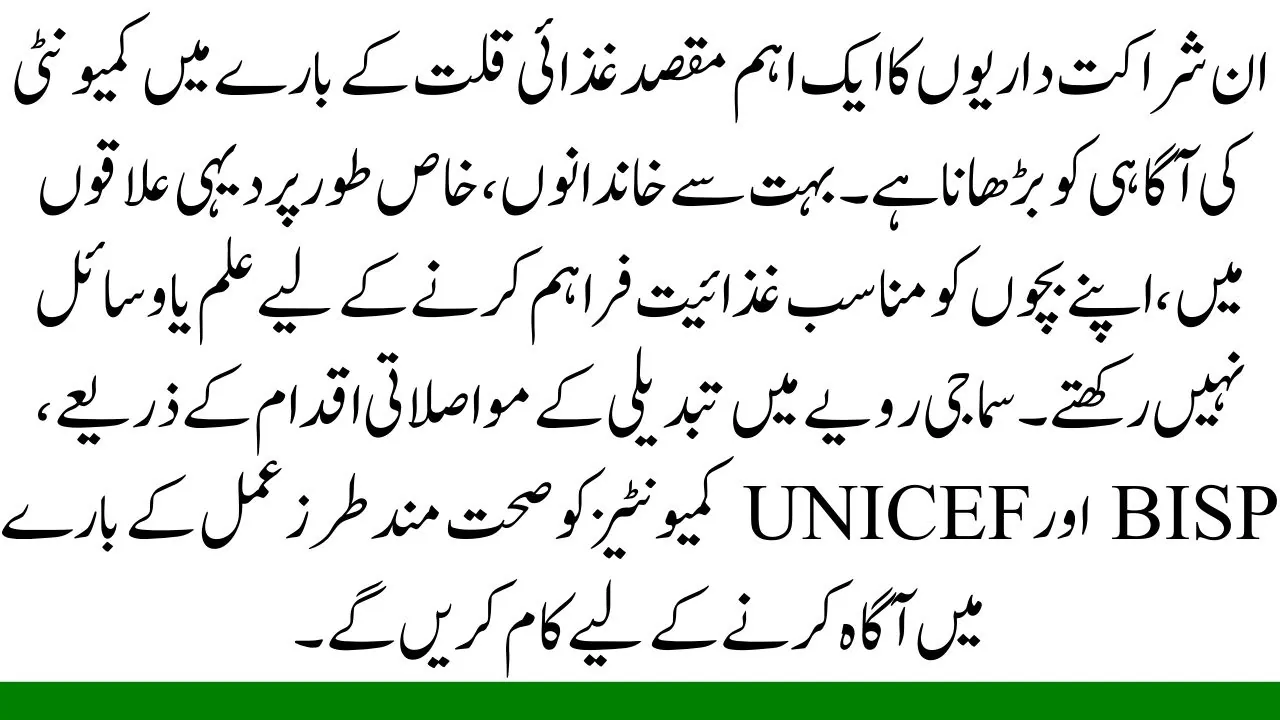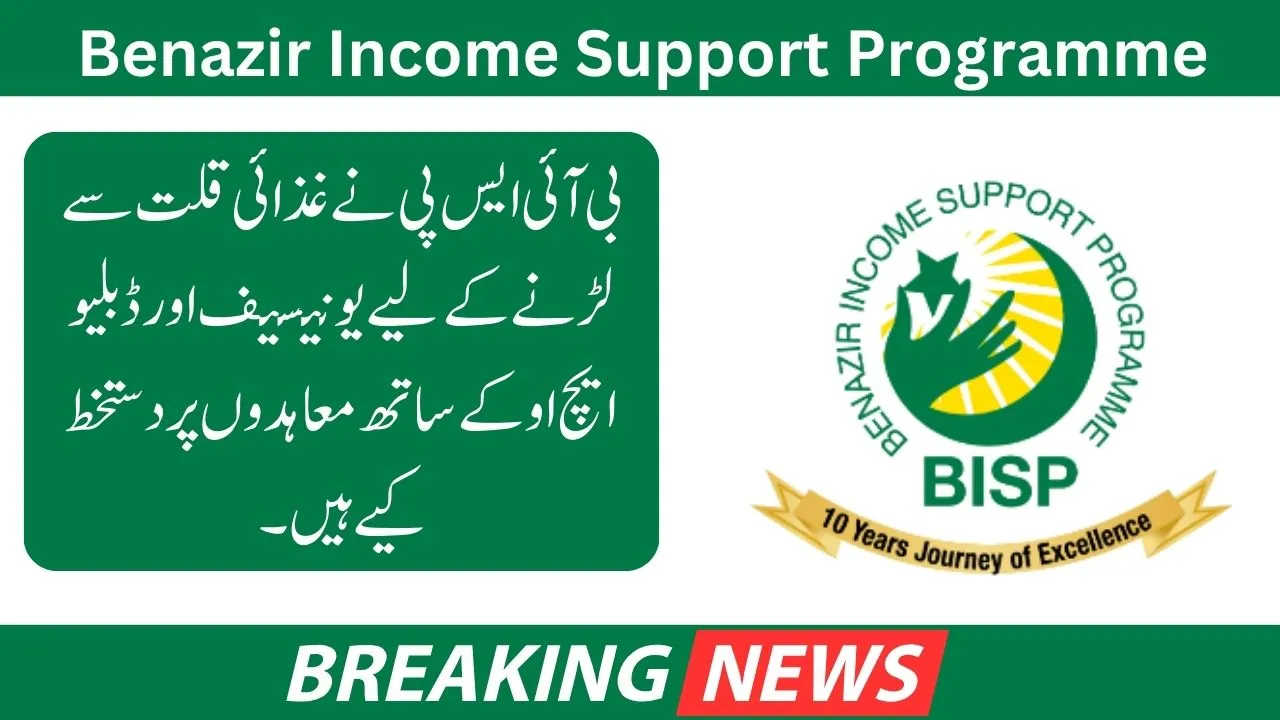The Benazir Income Support Programme (BISP) has signed two important agreements with UNICEF and the World Health Organization (WHO) under the Benazir Nashonuma Programme. The main goal of these agreements is to fight malnutrition and improve the health of children and mothers in Pakistan. Malnutrition is a serious issue in the country, especially in poor communities, and this partnership aims to provide both awareness and life-saving nutrition support.
| Key Details of BISP Partnerships | Information |
| Partners | UNICEF and WHO |
| Focus | Child and maternal health, malnutrition |
| Main Benefits | Nutrition support, healthcare services |
| Target | Vulnerable communities in Pakistan |
Contents
Agreement with UNICEF
The agreement with UNICEF focuses on Social Behavior Change Communication (SBCC). This initiative is aimed at educating communities about the importance of good nutrition and healthy practices. UNICEF will also provide Ready-to-Use Therapeutic Food (RUTF), which is specifically designed for treating children suffering from Severe Acute Malnutrition (SAM). This partnership is important because it helps save the lives of children by providing essential nutrition that can help them recover from severe malnutrition.
UNICEF’s Representative in Pakistan, Abdullah Fadil, emphasized the importance of prioritizing children in poor communities. He stated that this partnership will help children survive, grow, and reach their full potential.
Agreement with WHO
BISP’s partnership with WHO focuses on setting up stabilization centers in District Headquarters Hospitals (DHQs) across Pakistan. These centers will offer specialized care for children suffering from SAM with complications. This initiative is crucial because it provides medical treatment to the most vulnerable children who are dealing with severe malnutrition. Through these centers, WHO and BISP aim to reach 75,000 children and provide them with life-saving treatment.
WHO’s representative, Dr. Luo Dapeng, highlighted the importance of promoting breastfeeding as a key strategy to prevent stunting in children. This partnership will not only provide treatment but also support programs that promote healthy practices like breastfeeding.
Importance of These Partnerships
The agreements with UNICEF and WHO are a major step forward in the fight against malnutrition in Pakistan. Malnutrition affects a large number of children, especially in poor and rural areas. By working together, BISP, UNICEF, and WHO aim to provide both immediate and long-term solutions to this problem. The partnerships will not only provide food and medical care but also help raise awareness about the importance of nutrition.
These efforts will focus on the most vulnerable communities in Pakistan, ensuring that help reaches those who need it most.
- Focus on child and maternal health
- Providing therapeutic food for malnourished children
- Setting up specialized centers for medical care
- Promoting breastfeeding to prevent stunting
Community Awareness and Support
One of the key goals of these partnerships is to increase community awareness about malnutrition. Many families, especially in rural areas, don’t have the knowledge or resources to provide proper nutrition to their children. Through the Social Behavior Change Communication initiative, BISP and UNICEF will work to educate communities about healthy practices.
At the same time, the provision of therapeutic food will ensure that children who are already suffering from malnutrition get the necessary treatment to recover. This combination of education and direct support will help reduce malnutrition rates in the long run.

BISP’s Commitment to Health and Nutrition
BISP is known for providing financial assistance to low-income families in Pakistan. However, with these new partnerships, the program is expanding its focus to include health and nutrition. By working with UNICEF and WHO, BISP aims to address the root causes of malnutrition and improve the overall health of children and mothers in vulnerable communities.
Secretary BISP, Amer Ali Ahmad, stated that these agreements mark an important milestone for BISP. He said the organization is committed to ensuring that the benefits of this collaboration reach the people who need it the most.
Also Read: Maryam Nawaz 15 Lakh Loan Scheme: Know how to get register yourself for 15 Lakh Loan Scheme
Conclusion
The partnerships between BISP, UNICEF, and WHO are a crucial step in improving the health and well-being of children and mothers in Pakistan. By providing life-saving nutrition and medical care, these organizations aim to make a lasting impact on the lives of the most vulnerable populations. With a focus on community awareness, treatment for malnourished children, and promoting healthy practices like breastfeeding, these efforts are set to bring significant change to the fight against malnutrition in Pakistan.

